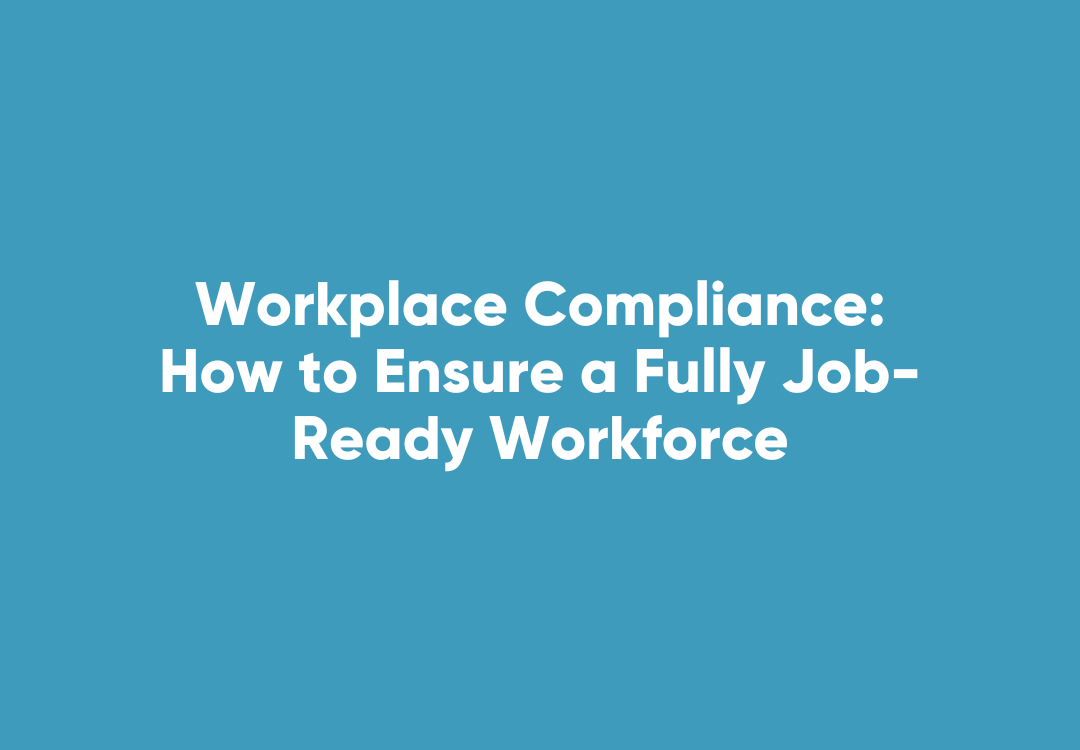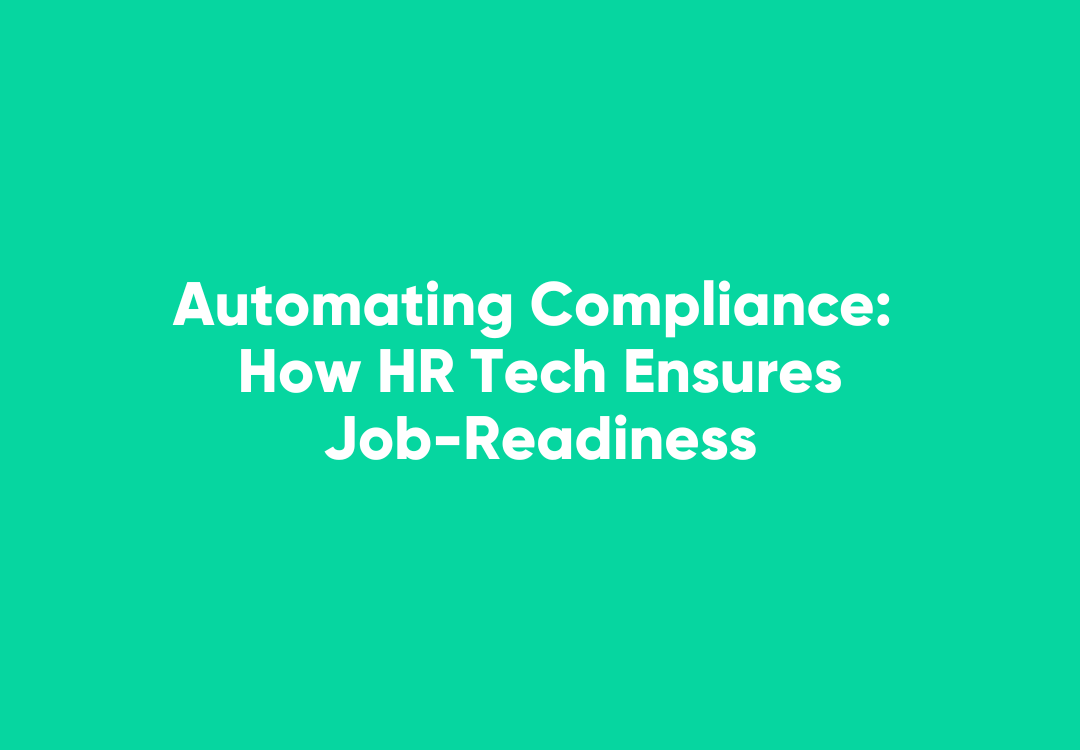How to Interpret Australian Police Check Results
How to Interpret Australian Police Check Results
Understanding and accurately interpreting Australian police check results is essential for employers to make informed hiring decisions, reduce workplace risk and minimise hiring bias and discrimination. These checks play a crucial role in the recruitment process; however, they can be complex to understand. This guide will help you interpret police check results effectively.
Understanding the Basics of a Police Check
A police check, whether it’s a Nationally coordinated criminal history check (NCCHC) or an Australian Federal Police Check (AFP Check), exposes information relating to an individual’s criminal history. These may include convictions, findings of guilt, court appearances, and any pending charges. It's important to note that police checks will only show disclosable offences as determined by relevant state or territory legislation or policy, along with results reflecting police records at the date and time the result is released, also known as a ‘point in time’.
Key Sections of a Police Check Report
- Personal Information:
This section includes the individual's personal details, such as name, date of birth, and address, to confirm their identity. Ensuring these details match the candidate’s information is crucial to avoid discrepancies. - Disclosable Court Outcomes (DCOs):
This section lists any disclosable criminal records found, including:
- Convictions: Records where the individual has been found guilty of a crime. These can range from minor offences (like traffic violations) to serious crimes (such as assault or fraud).
- Findings of Guilt Without Conviction: Cases where a court finds an individual guilty but does not record a conviction, often for minor offences or first-time offenders. These findings can still appear on a police check and should be interpreted based on the context of the offence.
- Pending Charges: Any charges awaiting court outcomes will be listed and should be considered as they may impact the individual's suitability for a role.
- Court Appearances: Information about past and upcoming court appearances related to the individual.
- Good Behaviour Bonds or Other Court Orders
An Australian police check does not include details about spent convictions or minor traffic offences, unless these offences are considered criminal and have resulted in a guilty verdict in court.
- No Disclosable Court Outcomes:
If the check reveals no criminal history or all relevant convictions are non-disclosable (due to being spent or annulled under state law), the report will state “No Disclosable Court Outcomes” (NDCO). This indicates that the individual has no criminal history that is relevant or legally disclosable for employment purposes.
Interpreting the Results
- Relevance to the Role:
The relevance of any disclosed criminal history to the job is critical. For example, a minor traffic offence might be irrelevant for most roles but significant if the job involves driving. Serious offences like fraud are highly relevant for positions with financial responsibilities. Employers should consider whether the offence aligns with the job duties and the level of risk involved. - Time Since the Offence:
The time elapsed since the offence is a crucial factor. A conviction from many years ago may be less relevant, especially if the individual has shown evidence of rehabilitation. Many Australian states have enacted legislation surrounding spent convictions known as the ‘spent convictions scheme’, where certain offences are expunged after a period, provided there have been no further offences. - Pattern of Behaviour:
Look for patterns in the criminal history. A single minor offence may be less concerning than multiple offences over time, indicating ongoing behaviour that could be problematic in a workplace. A history of similar offences suggests a higher risk, particularly if related to the job's nature. - Context of the Offence:
Understanding the context of an offence is essential. This includes the circumstances surrounding the crime, the individual's age at the time, and any mitigating factors.
What To Do If a Police Check Reveals a Disclosable Outcome
If a police check reveals a disclosable outcome that raises concerns about a candidate's suitability for a role, employers should follow a fair, reasonable and consistent process:
- Review the Information:
As mentioned above, carefully review the results in the context of the job requirements. Assess the relevance of the criminal history, considering the offence's severity, the time since it occurred, and any evidence of rehabilitation. - Discuss with the Candidate:
Have an open conversation with the candidate about the findings. This gives the candidate the opportunity to explain the circumstances of the offence and demonstrate any steps taken towards rehabilitation. - Consider Legal Obligations:
Employers must comply with anti-discrimination laws, which prohibit unfair treatment based on irrelevant criminal history. Ensure that any decision to reject a candidate is based on the offence's relevance to the job role. - Document the Decision:
Keep detailed records of the decision-making process, including why the candidate was not selected and how their criminal history was assessed. This documentation is important for compliance and defending against potential claims of unfair treatment. - Seek Legal Advice if Necessary:
If the decision is complex or there are concerns about legal compliance, seeking legal advice ensures that the employer’s actions align with employment laws.
How To Conduct Police Checks with WorkPro
Navigating the complexities of police checks can be challenging, but WorkPro simplifies the process with its comprehensive and streamlined police check services. Here’s how WorkPro can assist:
- Automated and Efficient Processing: WorkPro allows employers to easily request, track, and manage police checks, ensuring that all checks are processed quickly and accurately, reducing administrative burden and allowing for faster decision-making.
- Configurable Payment Options: WorkPro offers the option for an organisation to choose who pays for the check. You can set this option check-by-check.
- Bulk Requests: WorkPro supports bulk requests, enabling employers to handle multiple police checks simultaneously, as well as creating bundles with other background checks. This is useful for large-scale hiring or regular checks on existing employees.
- Compliance and Legal Assurance: WorkPro ensures that all police checks comply with relevant state and territory legislation. Employers can be confident that they are meeting legal obligations and maintaining high compliance standards.
- Secure Data Management: WorkPro manages all data securely, adhering to strict data privacy standards, ensuring sensitive information is protected.
- On-Demand Reporting: WorkPro offers on-demand compliance reporting, providing clear visibility into the status of police checks and making it easy to monitor compliance and track outcomes.
- Access Results Quickly and Securely: Once the check is vetted, submitted and finalised, the result and certificate are available within a secure WorkPro account within hours, ready for you to make an informed hiring decision.
Adhering to Regulations
It’s important to note that as of 1st July 2024, the Australian Criminal Intelligence Commission (ACIC), the custodian of the National Criminal database, released its new Agreement. There are several updates and changes, some of which are noted below, which come into effect on 1st January 2025.
- Identity Documents: The ACIC has reduced the number of identity documents that are required for an Applicant to upload, from four to three.
- Parents/Guardian Consent: Currently a parent/guardian only needs to sign and date the application form for applicants who are under 18. This will be adjusted so that a parent/guardian also needs to provide a linkage of identity.
- Document Verification Service: WorkPro has rolled out our AI solution, including a Document Verification Service (DVS), and gradually introducing Optical Character Recognition (OCR) software and Biometric Facial Verification software. While not mandated by ACIC, this is part of WorkPro’s commitment to enhancing personal security and the candidate experience.
Interpreting Police Checks for Safe and Ethical Hiring
Interpreting Australian police check results requires consideration in the relevance, timing, and context of any disclosed criminal history. Handling police check results with sensitivity and transparency helps maintain a safe workplace and upholds ethical hiring practices. WorkPro's comprehensive services make conducting and interpreting
police checks a seamless part of the hiring process.
Contact us now
to find out how you can implement this for your business.













